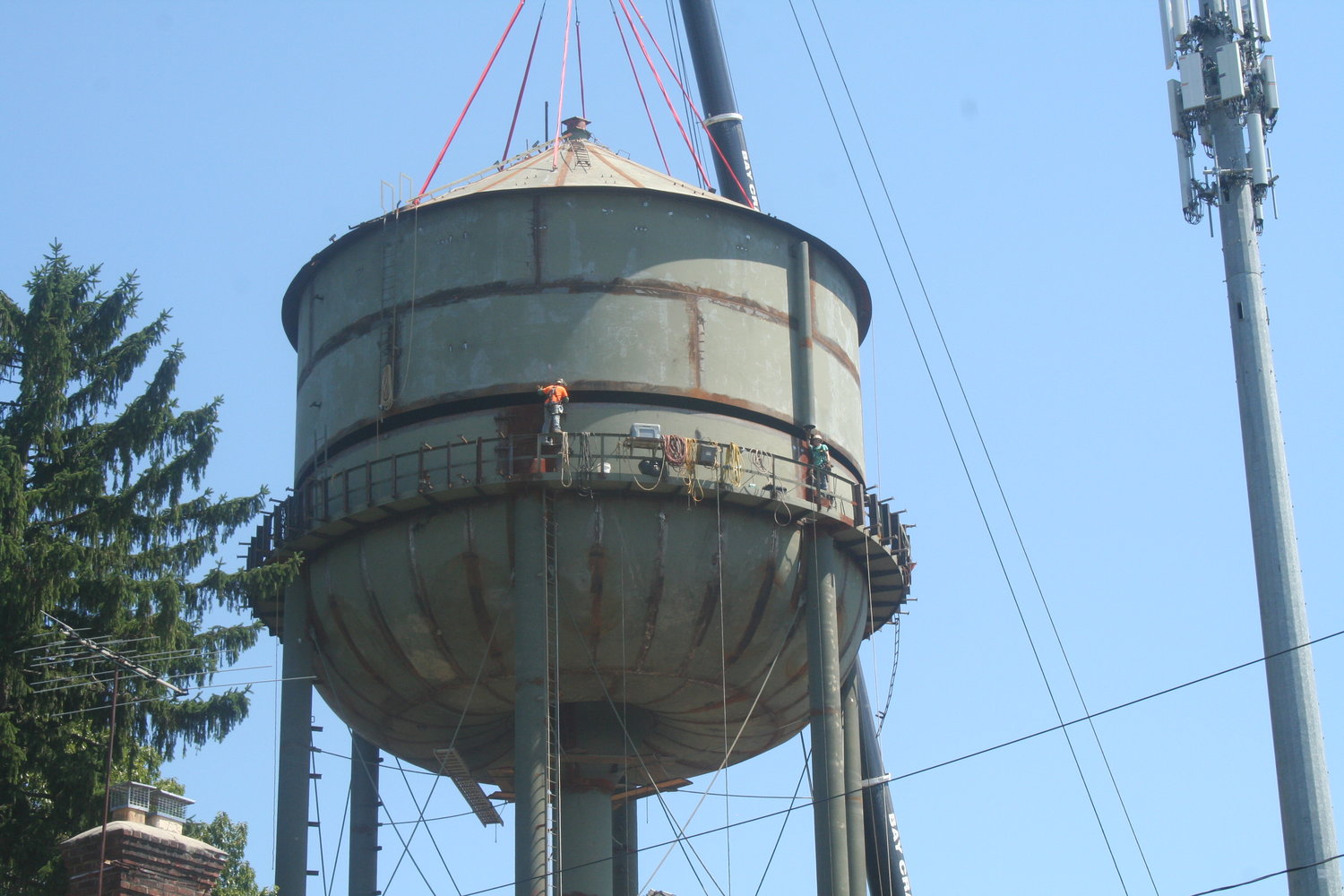Water treatment coming to Glen Head well
NYAW plans to begin long process this winter
Treatment of the chemical perfluorooctanesulfonic acid, or PFOS, in the Glen Head well is set to begin this winter, after New York American Water recently awarded the construction contract for the well’s granular activated carbon treatment system to Philip Ross Industries, a Melville-based firm specializing in water treatment systems.
The project, which includes installation of four GAC vessels, as well as construction of a 22-foot-tall steel structure to house the filters, should cost roughly $3.4 million, about 25 percent less than the initial estimate of $4.6 million, NYAW External Affairs Manager Lee Mueller said. She also said that landscaping would be added around the structure to beautify the property.
The cost of the treatment, Mueller said, would be incorporated into the company’s next rate filing, which will determine how the project’s cost is applied to rates. She also said that NYAW has filed a complaint in federal court against those responsible for manufacturing emerging compounds such as PFOS, seeking to recover treatment costs. If the complaint were to succeed, she said, customers might pay nothing.
Before this year, emerging contaminants such as PFOS, perfluorooctanoic acid, or PFOA, and 1,4 Dioxane, which have been found in water wells across Long Island, were not regulated by the state at the level deemed necessary by experts. However, those regulations have changed. PFOS levels now cannot exceed 10 parts per trillion for water to be considered safe for human consumption.
“New York American Water has been proactive in terms of these new drinking water standards, and we are pleased that we are moving into the construction phase,” Mueller wrote in an email. “The treatment design, Health Department review and Town of Oyster Bay zoning processes were lengthy but important parts of overall project delivery. New York American Water is pleased to begin construction of this important treatment system.”
As construction gets under way, Mueller said NYAW would use as little water from the Glen Head well as possible. She said the company should be able to meet wintertime water demand with the contaminant-free Sea Cliff well. However, she said the standards established by the state are set far below levels that cause health effects. This, she said, means that exceeding the standard does not mean the water is unsafe for use while construction is ongoing.
The Glen Head-Glenwood Civics Association has worked closely with NYAW throughout the approval process for the decontamination system, said George Pombar, the group’s president. He met with residents who live adjacent to the well’s property to ensure they approved of the design, and they did, he said. The civic association also worked closely with the Town of Oyster Bay to make sure permits were not issued until all parties were satisfied.
The quality of Glen Head’s water has been a concern for residents throughout 2020, Pombar said, and all who have been involved are excited that construction of the treatment system will soon begin.
“We feel very good that by the spring we will hopefully have all this cleaned up and have the filters installed,” he said, “and we can go on to the next task.”
Nassau County Legislator Delia DeRiggi-Whitton, a Democrat from Glen Cove, who has been among the public officials working to ensure Glen Head’s water is treated, said she was pleased the cleanup process would soon begin.
Earlier in the year, she said, she pressed NYAW to hold public hearings on the project, but the coronavirus pandemic stopped them from taking place, leaving many without a voice in the approval process for the decontamination system.
DeRiggi-Whitton said she also took issue with construction of the steel structure, which she said was an unnecessary expense. In the past, though, NYAW officials have said it is needed to prevent the GAC vessels from freezing during winter.
Additionally, DeRiggi-Whitton said a similar project in Port Washington received $18 million in state funding. Because NYAW is a private company, however, it was not eligible for state funds.
This, DeRiggi-Whitton said, is among the reasons that North Shore residents need a public water authority. The fight for public water has been an issue for years on the North Shore. On Oct. 28, Gov. Andrew Cuomo proposed legislation calling on the state to examine the feasibility of a public takeover of New York American Water’s infrastructure in Nassau County.
The bill would require a study by the state Public Service Commission to be conducted by April 1.
The legislation also calls for steeper penalties for utilities with a record of poor responses during emergencies such as storms. This, officials said, would force utilities to be more accountable for their actions.
“What it really reiterates over and over is that I would love to see public water for this district for so many reasons,” DeRiggi-Whitton said.
Bruce Kennedy, who is president of public water advocacy group North Shore Concerned Citizens, and the Sea Cliff village administrator, said, “Safe and clean drinking water is one of the most important things this community should be able to obtain.”

 56.0°,
Overcast
56.0°,
Overcast 





